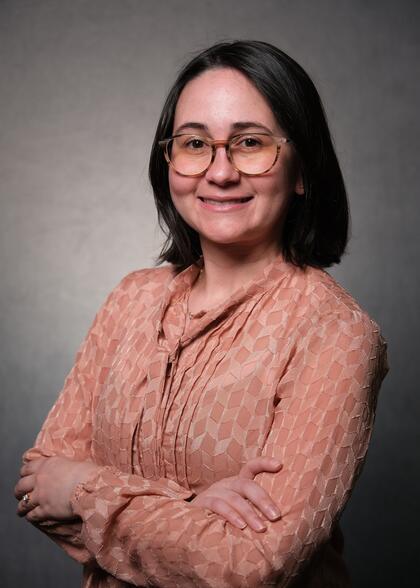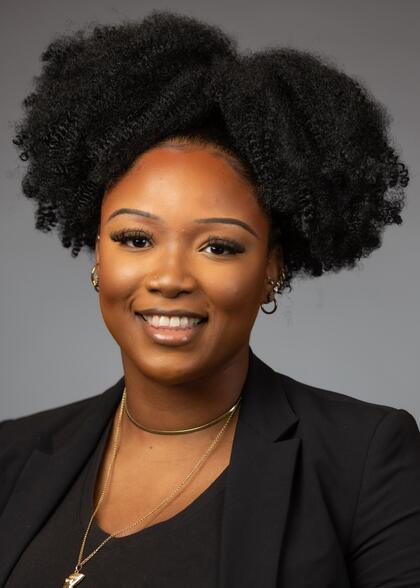Johns Hopkins University's Provost's Postdoctoral Fellowship (PPF) program has selected four new researchers for its 2024-25 cohort. The program, which was launched in 2015, identifies and supports early-career scholars with diverse life experiences and backgrounds as they pursue faculty positions and research.
"We are thrilled to welcome our newest cohort of Provost's Postdoctoral Fellows," said Roland J. Thorpe Jr., JHU's associate vice provost for faculty diversity. "They represent the next generation of visionary scholars whose research and leadership will shape the future of academia and beyond. Their work at Johns Hopkins will not only advance their fields but also inspire new pathways for innovation, inclusion, and discovery."
The PPF program prepares participants for future faculty positions while offering them community, networking, and mentorship opportunities. It was one of several programs outlined in the Faculty Diversity Initiative 2.0 in 2022's Second JHU Roadmap on Diversity, Equity, and Inclusion, and has since supported eight scholars.
Those interested in applying for next year's cohort can learn more on the JHU Faculty Affairs website. Applicants are welcome from any area of study, though priority will be given to those from STEM disciplines. Applications are open through Oct 11.
This year's fellows are:

Image caption: Angélica Cruz-Lebrón
Angélica Cruz-Lebrón completed her PhD in molecular virology at Case Western Reserve University in 2020. Prior to joining the PPF program in the Pathology department, Cruz-Lebrón held a short postdoctoral position at Case Western before joining the Sfanos lab as a postdoctoral fellow in pathology. Cruz-Lebrón's research focuses on the interplay between steroid metabolism by the gut microbiota and prostate cancer treatment resistance. This fellowship will support one of the first studies examining prostate cancer drug metabolism by the gut microbiota that leads to resistance to prostate cancer treatment. During her free time, Cruz-Lebrón enjoys photography and visiting art museums.

Image caption: Leann Mclaren
Leann Mclaren completed her PhD in political science at Duke University in 2024. Before joining the PPF program in the Political Science department, Mclaren was a doctoral student at Duke, where she received the National Science Foundation Graduate Research Fellowship and completed a dissertation funded by the Russell Sage Foundation, among other organizations. Mclaren's research focuses on Black political behavior in the U.S., social identity, and immigration politics. Mclaren is currently working on a book project that delves into the strategies and perceptions of Black candidates with "invisible identities," such as immigrant identity. This groundbreaking research involves the collection of the first known dataset of Black immigrant politicians elected in the U.S. Her unique approach combines content analysis and survey experiments to analyze the effectiveness of these candidates' identity strategies among Black and white Americans, potentially reshaping future political campaigns. When Mclaren is not working on her academic research, she enjoys crotchet, reading novels, and taking long walks in nature.

Image caption: Eugene Park
Eugene Park completed her MD/PhD in immunology at Washington University in St. Louis in 2020. Prior to joining the PPF program in the Department of Molecular Biology and Genetics, Park completed her residency in dermatology at Johns Hopkins Hospital and her graduate work in the lab of Wayne Yokoyama at Washington University. Park's research focuses on the mechanisms by which ribosomes regulate inflammasome activation in keratinocytes. Funding from this award will allow for detailed investigation of the molecular mechanisms that govern skin inflammation with potential ramifications on photosensitive skin disorders and skin autoimmunity. In her free time, Park enjoys reading, running, and baking.

Image caption: A. Michael West Jr.
A. Michael West Jr. completed his PhD in mechanical engineering at the Massachusetts Institute of Technology in May 2024 under Professor Neville Hogan. His research focused on improving control algorithms for robots used in rehabilitation and dexterous manipulation. He investigated human upper-limb motor control and perception during complex manipulation tasks, introducing novel analytical techniques and experimental paradigms that provided new insights to the field. West aspires to establish his own research laboratory focused on using insights from human motor control and perception to develop innovative rehabilitation and assistance technologies, such as prosthetics, exoskeletons, and therapeutic robots. He is thrilled to join the Haptics and Medical Robotics Laboratory under Jeremy Brown. His project will enhance the understanding of haptic feedback during manipulation tasks, which will then be used to improve robotic rehabilitation technologies. West's passion for this field was sparked by his experiences as a college athlete. Recovering from various sports injuries fueled his dedication to developing technologies for injury recovery and motor impairment rehabilitation. Following this postdoctoral appointment, West will join the faculty at the Georgia Institute of Technology as an assistant professor.
Posted in University News
Tagged fellowships, postdoctoral fellows







